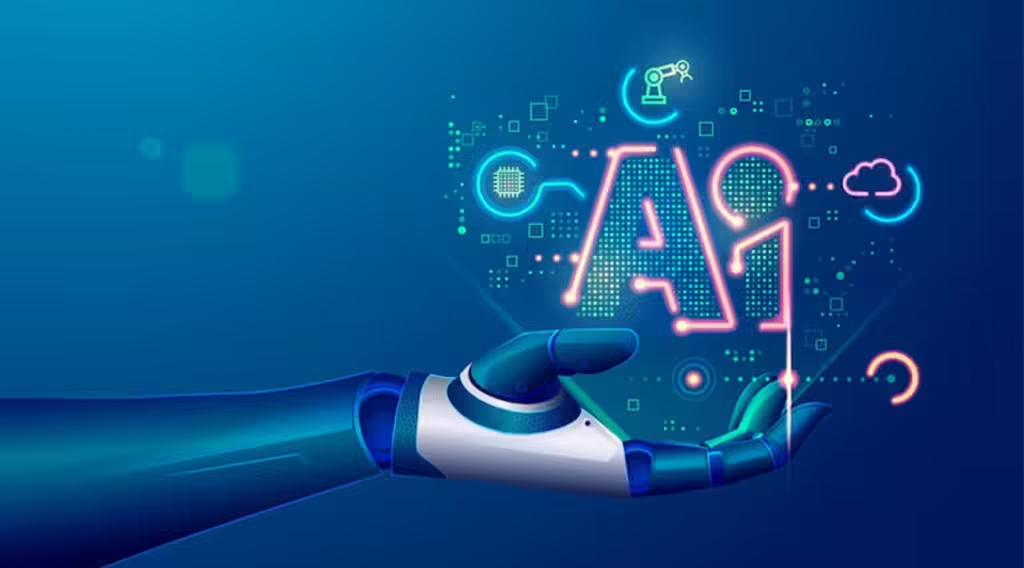1. AI in Healthcare: Revolutionizing Patient Care and Diagnosis

Artificial Intelligence (AI) is profoundly reshaping the healthcare industry, bringing about significant improvements in patient care and diagnosis. One of the most notable advancements is in medical imaging. AI-powered tools, such as those developed by Zebra Medical Vision, are enhancing the accuracy and efficiency of interpreting medical images. These tools utilize deep learning algorithms to detect anomalies in radiographs, CT scans, and MRIs, often identifying conditions that may be overlooked by human eyes.
Predictive analytics is another area where AI is making a substantial impact. By analyzing vast amounts of healthcare data, AI can predict disease outbreaks with remarkable accuracy, allowing for timely interventions. IBM Watson Health is at the forefront of this innovation, employing AI to forecast the spread of diseases and inform public health decisions. This capability is particularly crucial in managing pandemics, where early detection and response can save countless lives.
Personalized treatment plans are becoming increasingly feasible with the integration of AI algorithms. These algorithms analyze individual patient data, including genetic information, lifestyle factors, and medical history, to create tailored treatment strategies. PathAI, for instance, is leveraging machine learning to optimize treatment plans for cancer patients, ensuring that therapies are precisely aligned with the patient’s unique profile.
Virtual health assistants represent another groundbreaking application of AI in healthcare. These digital assistants provide patients with round-the-clock support, answering medical queries, scheduling appointments, and even monitoring vital signs remotely. Such tools not only enhance patient engagement but also alleviate the burden on healthcare professionals. Companies like Babylon Health are pioneering these intelligent systems, making healthcare more accessible and efficient.
In summary, AI is revolutionizing the healthcare sector by enhancing diagnostic accuracy, predicting disease outbreaks, personalizing treatment plans, and providing continuous patient support. As AI technology continues to evolve, its integration into healthcare systems promises to deliver even greater advancements in patient care and medical outcomes.
2. AI in Finance: Enhancing Fraud Detection and Customer Service
Artificial Intelligence (AI) is revolutionizing the finance industry by significantly enhancing fraud detection and customer service. The deployment of AI algorithms to analyze vast amounts of transactional data in real-time has proven to be a game-changer. These algorithms can identify patterns and anomalies that may indicate fraudulent activities, thereby enabling financial institutions to act swiftly and mitigate potential losses. This capability not only saves billions of dollars but also enhances the overall security of financial transactions.
Financial giants like Mastercard and PayPal are at the forefront of integrating AI into their fraud detection systems. These companies utilize machine learning models to monitor transactions continuously, flag suspicious activities, and adapt to new types of fraud as they emerge. For example, Mastercard’s AI-driven Decision Intelligence platform assesses the risk of transactions in milliseconds, providing a robust defense against fraud.
In addition to fraud detection, AI is transforming customer service in the finance sector. AI-driven chatbots and virtual assistants offer personalized financial advice and support, enhancing the customer experience. These intelligent systems can handle a multitude of queries, from basic account information to complex financial planning, all while providing a seamless and efficient service. Kasisto, with its KAI-powered virtual assistants, exemplifies how AI can be leveraged to deliver exceptional customer service. These AI assistants are capable of understanding and responding to customer inquiries in natural language, thereby offering a user-friendly interface for financial interactions.
Moreover, AI’s ability to continuously learn and adapt ensures that financial institutions can stay ahead of evolving customer needs and emerging threats. By integrating AI into both fraud detection and customer service, the finance industry is not only enhancing security and efficiency but also fostering trust and customer satisfaction.
AI in Retail: Optimizing Supply Chain and Personalizing Customer Experience
Artificial Intelligence (AI) is revolutionizing the retail industry by enhancing supply chain management and personalizing customer experiences. In supply chain management, AI tools play a critical role in predicting inventory needs, managing logistics, and reducing waste. Predictive analytics, powered by AI, enables retailers to forecast demand more accurately, ensuring that products are available when and where they are needed. This not only improves inventory management but also minimizes overstocking and understocking, which can lead to significant cost savings.
Logistics management is another area where AI is making a substantial impact. AI-driven solutions optimize routing and delivery schedules, reducing transportation costs and improving delivery times. Additionally, AI can analyze vast amounts of data to identify inefficiencies and suggest improvements, further streamlining the supply chain process. For example, companies like Amazon and Walmart leverage AI to enhance their logistics operations, ensuring that customers receive their orders promptly and efficiently.
On the customer experience front, AI-driven recommendation engines are transforming how consumers shop. These engines analyze customer behavior and preferences to provide personalized product suggestions, enhancing the shopping experience and increasing sales. By understanding individual customer needs, AI can deliver tailored marketing messages and promotions, making the shopping experience more engaging and relevant. Alibaba, for instance, utilizes AI to offer personalized recommendations and create a seamless shopping journey for its customers.
Moreover, AI-powered chatbots and virtual assistants are becoming increasingly common in retail, providing instant customer support and assistance. These tools can handle a wide range of customer inquiries, from product information to order tracking, improving customer satisfaction and reducing the workload on human staff.
In conclusion, AI is playing a pivotal role in transforming the retail industry. By optimizing supply chain management and personalizing customer experiences, AI is helping retailers operate more efficiently and provide better service to their customers. Companies like Amazon, Walmart, and Alibaba are at the forefront of these innovations, demonstrating the immense potential of AI in retail.
AI in Manufacturing: Streamlining Production and Enhancing Quality Control
Artificial intelligence is profoundly transforming the manufacturing industry by optimizing production processes and significantly enhancing quality control. One of the key applications of AI in manufacturing is predictive maintenance. By employing machine learning algorithms, AI systems can predict when machinery and equipment are likely to fail, allowing for timely maintenance and reducing unplanned downtime. This proactive approach not only minimizes disruptions but also extends the lifespan of machinery, thereby boosting overall operational efficiency.
In addition to predictive maintenance, robotics is another area where AI is making substantial strides. AI-powered robots are increasingly being deployed in manufacturing environments to perform a variety of tasks, from assembly to packaging. These robots are equipped with advanced sensors and AI algorithms that enable them to adapt to different tasks and environments, improving flexibility and productivity. Companies like Siemens and Fanuc are at the forefront of this revolution, offering AI-driven robotic solutions that enhance precision and consistency in manufacturing operations.
Automated quality inspection is yet another critical application of AI in manufacturing. Traditionally, quality control has been a labor-intensive process prone to human error. However, AI technologies such as computer vision and deep learning have revolutionized this aspect by enabling automated, real-time inspection of products. These systems can detect defects and anomalies with a high degree of accuracy, ensuring that only products meeting the highest quality standards reach the market. General Electric, for instance, has developed AI-based quality control systems that significantly improve inspection processes, reducing waste and enhancing product reliability.
Overall, AI’s integration into manufacturing is not merely an incremental improvement but a transformative shift. By leveraging AI for predictive maintenance, robotics, and automated quality inspection, manufacturers are achieving unprecedented levels of efficiency, reducing downtime, and enhancing product quality. Notable AI products from industry leaders like Siemens, General Electric, and Fanuc are setting new benchmarks in manufacturing excellence, underscoring the pivotal role of AI in driving industrial innovation.

